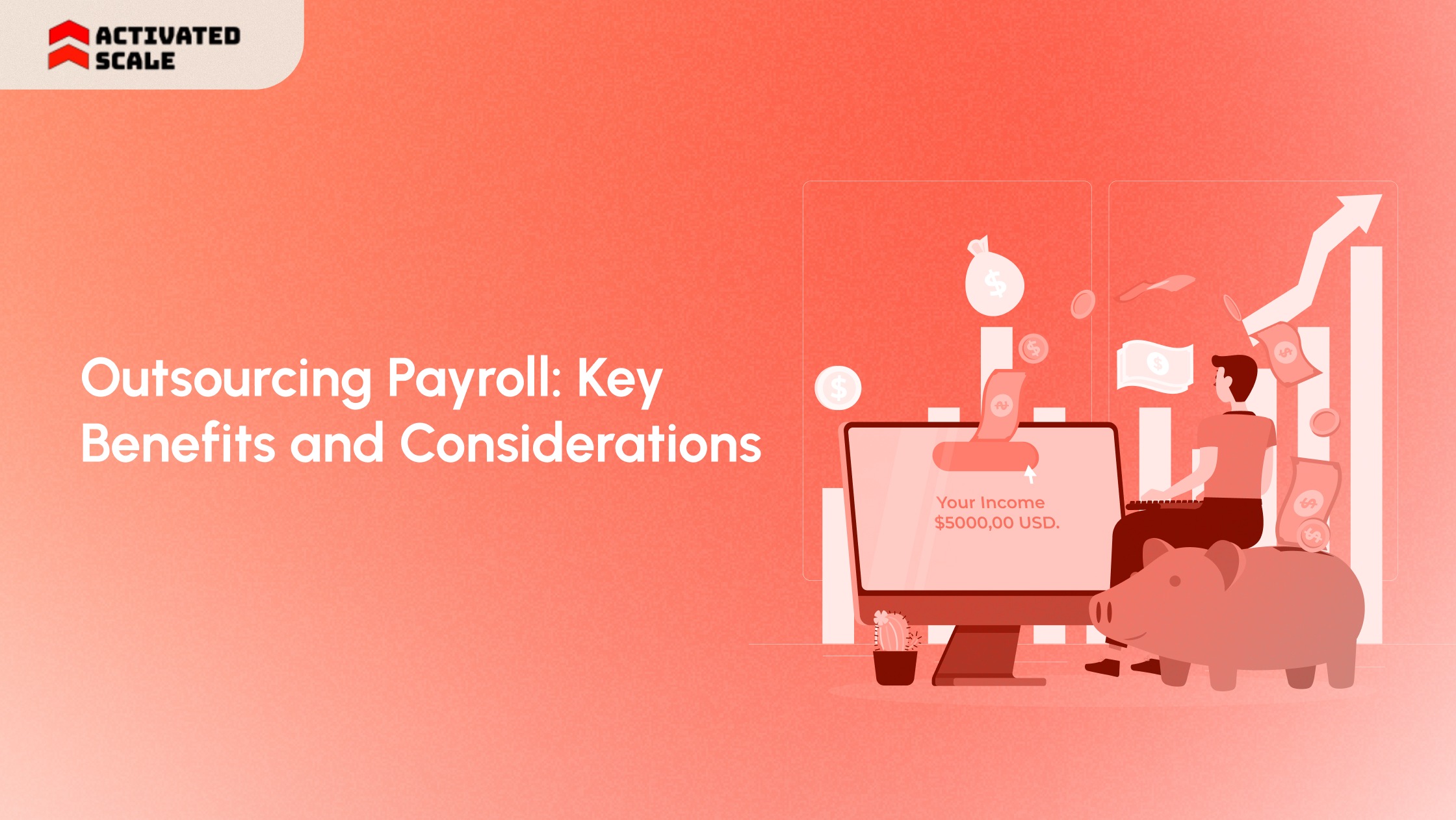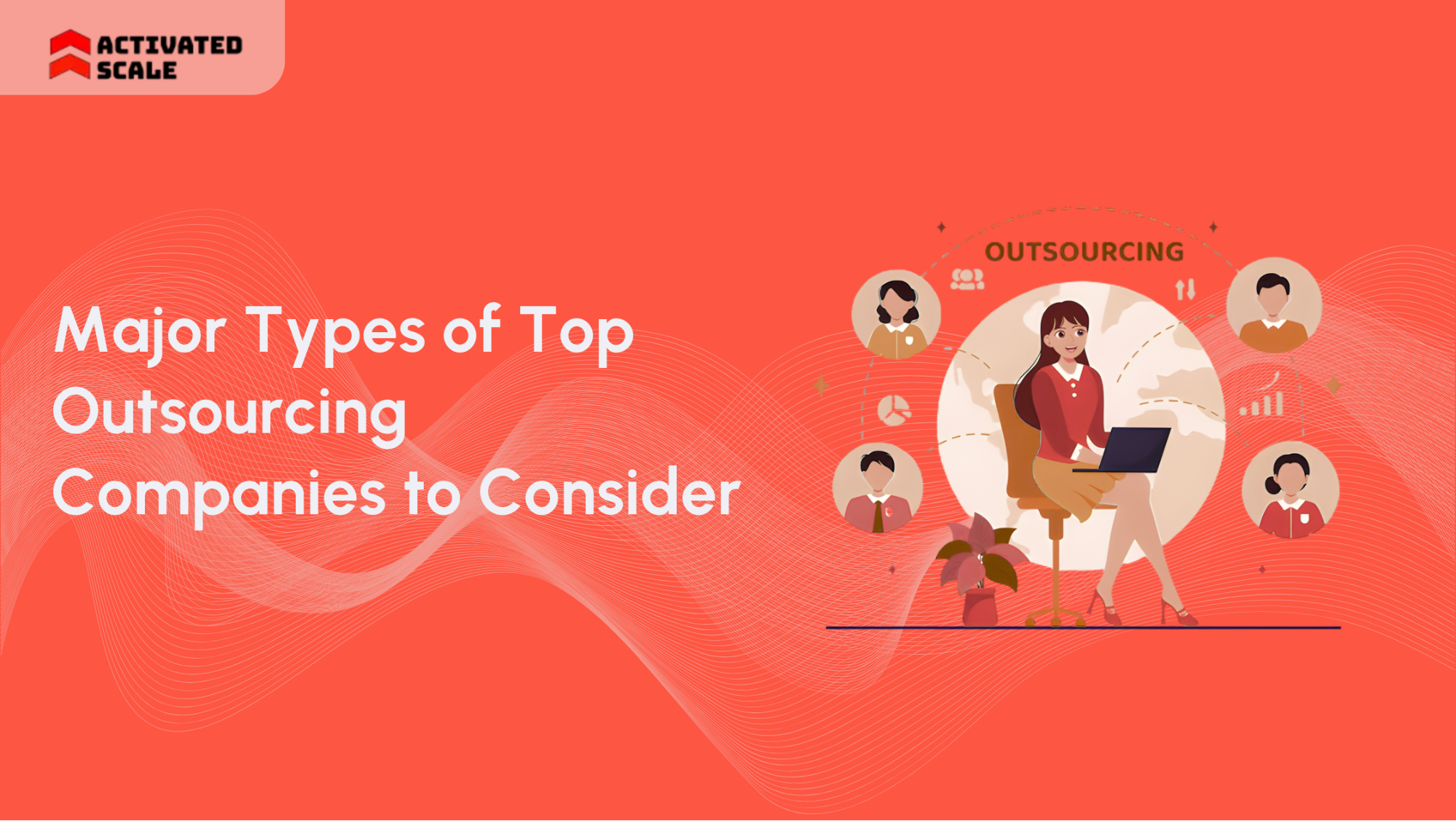Finding the right person to handle your client relationships and drive sales can make or break a business. But many companies struggle to define the exact role of an Account Executive (AE). Is their job just about closing deals, or do they contribute in other ways?
An AE role is the bridge between a company’s products and customer needs. Understanding their duties and how they fit into the sales cycle is crucial for business growth.
This blog will break down the core responsibilities of an AE, what makes them effective, and how they support revenue growth. Let's explore how AEs influence everything from client relationships to sales strategies.
Key Takeaways:
- Account Executives Drive Sales: AEs manage client relationships, negotiate contracts, and close deals, playing a key role in generating revenue for businesses.
- Client Relationship Management: AEs help retain clients, upsell services, and ensure satisfaction.
- Sales Cycle Management: AEs oversee the entire sales process, from prospecting to deal closure, ensuring smooth client interactions and maximizing conversion rates.
- Essential Skills for Success: Strong communication, negotiation, and relationship-building skills are key for AEs to succeed in their roles and meet sales targets.
- Growth Opportunities: With experience, AEs can advance to senior roles, such as Account Manager or Sales Director, influencing company growth and profitability.
What is an Account Executive?
An Account Executive (AE) is a salesperson who focuses on managing and growing business relationships with both prospective and existing customers. After SDRs qualify leads, AEs engage with and guide prospects through the sales process, ultimately closing deals to ensure a smooth transition and successful outcome.
Their job extends beyond closing deals as they also ensure ongoing customer satisfaction and maintain strong, long-term relationships.
Also Read: How to Hire Effective Sales Leaders for Startups
Now that we understand what an Account Executive does, let's learn how an AE role compares to that of a Sales Development Representative (SDR).
The Difference Between Sales Development Representatives and Account Executives
While both work with qualified leads, their focus areas and skills differ significantly.
SDRs are responsible for the top of the sales funnel. Their job is to identify potential leads, qualify them, and set the stage for future sales conversations. They focus on cold calling, emailing, and social media outreach, using high-gain questions to determine a lead's interest.
In contrast, AEs work with these qualified leads to nurture relationships, present solutions, and close deals. They excel in building rapport, consultative selling, and negotiation.
SDRs help AEs close deals more effectively by initiating the first conversation, understanding the lead’s pain points, and scheduling meetings with decision-makers.
To succeed in this role, AEs need a solid set of skills. Let’s explore the qualifications and abilities that make an AE stand out.
Role and Responsibilities of an Account Executive

The account executive (AE) role is multifaceted, covering three main areas: primary functions, key performance indicators (KPIs), and cross-team collaboration.
1. Primary Functions
Your key responsibilities as an AE include:
- Prospecting and Lead Generation: You'll research potential clients, conduct cold outreach, send targeted emails, and attend industry events to generate high-quality leads and identify new business opportunities.
- Client Relationship Management: Building and maintaining long-term relationships with clients is essential. You’ll regularly check in, address any concerns, and look for opportunities to upsell or cross-sell to meet client needs.
- Sales Process Management: You’ll manage the sales process end-to-end, from needs assessments and crafting proposals to contract negotiation and closing deals, ensuring a smooth experience for the client.
- Business Research: Understanding clients' businesses, challenges, and objectives to offer personalized solutions and build stronger relationships.
- Strategic Account Planning: Developing and executing strategic account plans that align with both client needs and business goals to drive revenue growth.
- Leading Complex Sales Cycles: Taking charge of complex sales cycles from initial engagement to deal closure, ensuring a smooth and successful process for the client.
2. Key Performance Indicators (KPIs)
Your performance as an AE will be assessed by the following:
- Sales Targets and Revenue Generation: Meeting or exceeding sales targets is essential. You’ll be responsible for generating revenue on a monthly, quarterly, and annual basis.
- Client Retention Rates: High client satisfaction and retention are crucial to maintaining a stable revenue stream and ensuring long-term growth.
- Pipeline Velocity and Conversion Rates: Managing your pipeline effectively and efficiently, moving leads through the sales process to maintain high conversion rates, is key to success.
Also Read: 18 Cutting-Edge Sales Performance Metrics to Boost Efficiency
3. Collaboration with Other Teams
AEs work closely with various internal teams, including:
- Marketing: Collaborating with the marketing team to identify lead generation opportunities, develop targeted campaigns, and utilize materials to support sales efforts.
- Product Teams: Collaborating with product teams ensures that client solutions align with their needs, and staying up-to-date on product developments for delivering the best solutions.
- Customer Support: Liaising with customer support to resolve client issues, share feedback, and improve overall client satisfaction.
Mastering these core responsibilities and collaborating across teams drives revenue growth and builds lasting client relationships that ensure your company’s continued success.
Need support managing your sales cycle? Activated Scale provides experienced fractional AEs who help you close more deals and scale quickly without full-time hires.
With that distinction in mind, let’s break down the key responsibilities that come with the AE role.
Skills and Qualifications Required for Account Executives

To excel as an Account Executive (AE), a combination of formal education, professional experience, and a wide range of skills is essential. Let's break down the key qualifications that can make an AE stand out.
1. Educational Background and Professional Experience
A bachelor’s degree in fields like business, marketing, or communications is typically required. For senior-level positions, a master’s degree might be preferred. While an academic foundation is important, practical experience is equally important.
AEs often come from a sales, account management, or customer service background. Many start as sales representatives, gaining the hands-on experience necessary to move into an AE role.
2. Communication and Interpersonal Skills
AEs need to clearly articulate complex ideas, deliver compelling presentations, and negotiate deals with confidence. Soft skills, such as empathy and active listening, are just as crucial. These skills enable AEs to build strong client relationships, address customer concerns, and develop solutions that meet their needs.
3. Technical Skills and Software Proficiency
Account executives rely on CRM software, such as Salesforce or HubSpot, to manage leads and track sales. Additionally, proficiency in Microsoft Office, particularly Excel for data analysis and PowerPoint for presentations, is often required. The ability to use social media for prospecting and client engagement is also beneficial.
4. Additional Desirable Skills
Beyond the core competencies, AEs who excel often have a few additional skills that set them apart:
- Sales forecasting and reporting: The ability to predict future sales and track progress.
- Self-motivation: Being able to work independently and stay driven without constant oversight.
- Adaptability: The sales domain changes rapidly, and successful AEs can adapt and acquire new skills as needed.
A strong combination of these skills can help an AE exceed their targets. Being a team player who works to break down silos and collaborates effectively with other teams is key in the sales environment.
5. Proven Track Record
A successful AE often has a history of exceeding sales quotas in complex selling environments. Having the ability to develop a strategic approach to sales, manage multiple stakeholders, and forecast accurately is critical.
AEs should also possess expertise in consultative selling, helping clients understand how the product or service addresses their problems, rather than merely pushing a product. Focusing on these areas will help you excel, whether you’re looking to move into an AE role or enhance your current performance.
Also Read: How to Hire and Retain Top Sales Talent for High-Growth Companies
Now that you know the key skills, let’s look at how you can thrive in the AE role with some practical tips and best practices.
Succeeding in an AE Role: Tips and Best Practices

To excel in an AE role consistently delivering value to clients while growing in your role is crucial. Here are key strategies to help you thrive:
- Find a Mentor: Connect with an experienced AE or a recently retired professional who can offer guidance. Learn from their career journey, challenges, and the lessons they wish they had known earlier.
- Master Your Product: Understand your company’s offerings inside and out. The more you know about your products, the better you'll be at tailoring solutions to meet your clients' specific needs.
- Stay Updated on Industry Trends: Keep up with market shifts, competitor activity, and emerging trends. This knowledge will help you position your product effectively and identify fresh opportunities.
- Embrace Rejection: Build resilience by following up strategically, learning from setbacks, and maintaining persistence with qualified leads.
- Set and Track Goals: Create clear, measurable goals using the S.M.A.R.T. framework. Regularly review your progress and adjust your approach as needed to stay on track.
- Utilize Sales Tools: Utilize your CRM and other sales enablement tools to streamline tasks, enhance communication, and increase productivity. These tools are designed to help you work more efficiently.
Activated Scale’s experienced, on-demand sales professionals can support your efforts in lead generation, client engagement, and strategy execution. Scale without the overhead of hiring full-time employees. Click to learn more.
With persistence, strategic thinking, and ongoing growth, you’ll be set for success.
Scale Your Account Executive Team with Activated Scale
Succeeding as an Account Executive requires more than just closing deals. It involves building strong client relationships, understanding your product, and staying resilient in the face of challenges. Utilizing the right strategies, setting clear goals, and continuously learning help you excel in this role and drive business success.
Looking to optimize your sales team? Activated Scale provides the support you need to drive success without the need for full-time hires. Here’s how we help:
- Fractional AEs (Account Executives): Access experienced AEs who can manage the full sales cycle from prospecting to closing, driving results without the commitment of full-time hires.
- Contract-to-Hire Sales Recruiting: Test experienced sales professionals on a flexible, trial basis before making a full-time hire. Ensure the right fit for your business goals.
- Fractional Sales Leadership: Our Fractional VPs of Sales can help design playbooks, refine your go-to-market plan, and boost sales success.
- Fractional SDRs (Sales Development Representatives): Our SDRs help you build your pipeline by handling prospecting, outreach, and lead qualification, setting up your AEs for success.
Activated Scale allows you to scale your sales team with experienced fractional AEs, ensuring high performance and rapid growth. Ready to enhance your sales efforts? Let’s chat.
FAQs
1. What does an Account Executive actually do?
An Account Executive (AE) manages the entire sales process, from prospecting to closing deals. They build relationships with clients and help tailor solutions to meet their needs.
2. How do I know if I’m ready to become an AE?
If you enjoy building relationships, solving problems, and thrive in a fast-paced environment, you're likely a good fit. It’s all about combining sales skills with client-focused solutions.
3. Can I be an AE without prior experience in sales?
While prior sales experience is helpful, it's not a requirement. With the right mentorship, understanding of your product, and a customer-centric approach, you can excel in this role.
4. What tools should an AE use to succeed?
A good CRM is essential, but also sales enablement tools, communication platforms, and analytics tools. They help you stay organized, track leads, and improve efficiency.
5. How can Activated Scale support me as an AE?
If you're looking to scale your team, Activated Scale offers experienced, fractional AEs who can manage your sales pipeline and drive results, all without the long-term commitment.
The Ultimate Guide to Hiring a Salesperson!
Get the step-by-step guide to hiring, onboarding, and ensuring success!
_edi.png)




